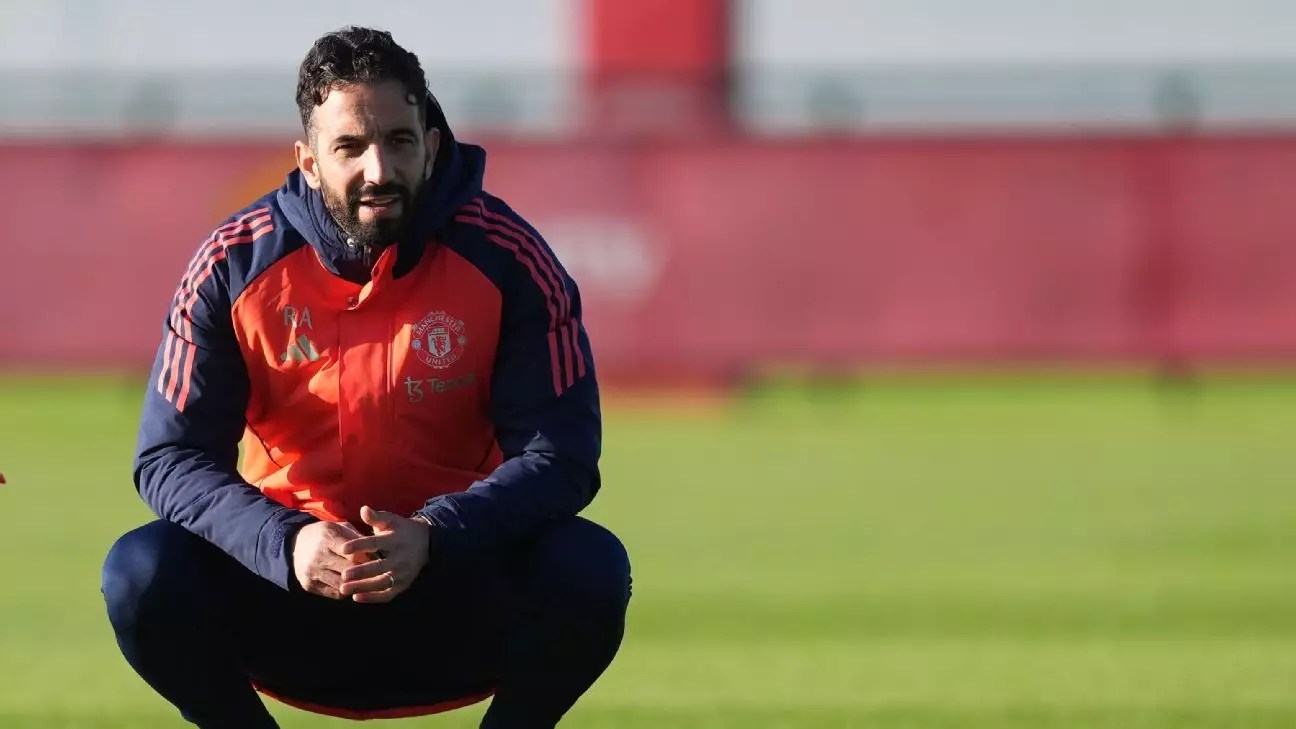In recent statements, Manchester United’s head coach, Ruben Amorim, expressed significant unease regarding the team’s ongoing goal-scoring difficulties. With a lack of offensive output plaguing the squad, Amorim is aiming to instill a sense of agency among his players, urging them to seek improvement within the squad rather than turning to signings in the transfer market. This introspective approach challenges not only the players’ skills but also their mental resolve to tackle the existing deficiencies head-on.
Amorim emphasized the importance of improvement as a collective responsibility, sharing insights that the talent is indeed present within the existing roster. He pointed to players like Rasmus Hojlund, Marcus Rashford, and Bruno Fernandes, highlighting the expectation that they capitalize on their inherent abilities to find the back of the net more consistently. “We can score so many goals,” Amorim asserted, firmly believing that if improvement is to be sought, it must come from the players themselves.
This approach marks a philosophical shift in which the burden does not solely rest on new acquisitions but rather reflects the club’s deeper issues concerning teamwork and confidence. Against Ipswich, the team showcased a disconcerting dichotomy: while they controlled possession, their lethargy in front of goal became glaringly apparent. This performance issue is not merely a matter of tactical errors but speaks to a larger struggle for self-belief among the forwards.
Amorim has also placed the spotlight on Marcus Rashford, who opened the scoring in his new tenure but has since faced scrutiny for his overall performance. The coach has pointed out that it is crucial for Rashford to assume responsibility for regaining his form. For almost 18 months, Rashford’s performances have been inconsistent, leading some fans to doubt his capabilities. Amorim’s insistence that Rashford must desire to reclaim his former abilities signals a shift toward personal accountability for player development.
He mentioned that Rashford, being a product of Manchester United, needs to harness his inner drive, supported by the coaching staff and fans alike. This is not just a rallying cry; it is Amorim’s way of reinforcing that great players evolve through adversity, and they must harness their potential during moments of trial.
In a light-hearted note, Amorim addressed an unexpected interruption during a post-match interview involving pop sensation Ed Sheeran. The singer, who has ties to Ipswich Town, generated headlines when he inadvertently crashed Amorim’s interview. The coach’s gracious handling of the situation underscores his ability to maintain focus on his primary objectives despite external distractions. He reflected on how simple gestures, like acknowledging a fellow commentator, can be overlooked in the heat of post-match evaluations.
Ultimately, Ruben Amorim’s philosophy revolves around nurturing inner strengths while addressing the pressing need for improvement in Manchester United’s offensive play. His approach champions self-sufficiency among players, highlighting that solutions lie not just in strategic changes but in their collective will to succeed.


Leave a Reply